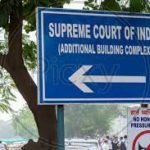The case originates from a writ petition filed by Respondent No. 1, M.T. Mani, who joined the RBI in 1981 and retired in 2014. Despite multiple past opportunities between 1990 and 2000 to switch from the Contributory Provident Fund (CPF) Scheme to the Pension Scheme, he chose to remain with the CPF and received his full CPF and Gratuity dues upon retirement.
In 2020, the RBI introduced Administration Circular No. 1 dated 14.09.2020, providing a final option for existing CPF optees and former employees to switch to the Pension Scheme, subject to specific conditions. Key conditions included a requirement to refund CPF with 3% simple interest and for pension benefits to be effective prospectively from 01.07.2020, with no arrears prior to that date. M.T. Mani exercised this option.
However, M.T. Mani sought to be granted pension benefits from his date of retirement (30.11.2014) with 12% interest on arrears. A Single Judge of the Kerala High Court dismissed his writ petition on 04.04.2023. Subsequently, a Division Bench of the High Court allowed his appeal on 18.12.2023, entitling him to pension benefits from his retirement date (30.11.2014). This decision by the Division Bench is what the RBI challenged before the Supreme Court.
Law Involved The judgment primarily involved the interpretation and application of:
- RBI Pension Regulations, 1990, and subsequent Administration Circulars, specifically Circular No. 1 dated 14.09.2020, governing the options for employees to switch from the Contributory Provident Fund (CPF) Scheme to the Pension Scheme.
- Principles of contract and policy decisions: Whether an employee, having accepted a scheme, can challenge specific conditions within it, such as cut-off dates and interest rates.
- Judicial review of administrative decisions: The scope of judicial interference with policy decisions, particularly those involving financial implications and cut-off dates.
- Precedents cited:
Mohammad Ali Imam and Others Vs. and Amar Nath Goyal (supra) and T.N Electricity Board vs. R. Veerasamy and Others were referenced regarding financial constraints as valid considerations for fixing cut-off dates.
Hirandra Kumar (supra) was cited to affirm that courts cannot alter rule-making authority decisions regarding cut-off dates unless found to be arbitrary or illegal.
Reasoning:
The Supreme Court considered the RBI’s arguments that the 2020 Circular constituted a comprehensive and financially considered scheme. The RBI contended that the scheme aimed to balance financial liability with employee benefits. It argued that the cut-off date of 01.07.2020 for pension payments and the 3% interest rate for CPF refund were crucial financial considerations and not arbitrary or discriminatory. The RBI also highlighted that M.T. Mani had multiple prior opportunities to opt into the pension scheme but chose not to, and by accepting the 2020 Circular, he accepted its terms, including the prospective application of pension benefits.
The Supreme Court implicitly agreed with the RBI’s position. It noted that the 2020 Circular was a “complete scheme in itself”. The Court found that the specified 3% interest rate was justified by financial and economic considerations, and the requirement for pension payments to commence from 01.07.2020 was clearly stipulated. The Court referred to its past judgments, emphasizing that financial constraints are valid reasons for establishing cut-off dates in such schemes and that courts should generally not interfere with policy decisions regarding cut-off dates unless they are arbitrary, illegal, or discriminatory. The Court concluded that the Respondent could not selectively accept beneficial terms while rejecting others within a holistic scheme. Therefore, the Division Bench’s decision, which granted retrospective pension benefits, was deemed unsustainable as it violated constitutional, statutory, and common law principles.
Holding:
The Supreme Court allowed the appeal filed by the Reserve Bank of India. Consequently, the impugned judgment of the Division Bench of the High Court of Kerala dated 18.12.2023 was set aside. The judgment of the Learned Single Judge dated 04.04.2023, which had dismissed M.T. Mani’s writ petition seeking retrospective pension, was restored. This means the Supreme Court upheld the RBI’s decision to grant pension benefits only from 01.07.2020, as per the terms of the 2020 Circular, and denied M.T. Mani pension from his retirement date in 2014.
The Reserve Bank Of India V. M.T. Mani And Another
Supreme Court: 2025 INSC 769: (DoJ 23-05-2025)






